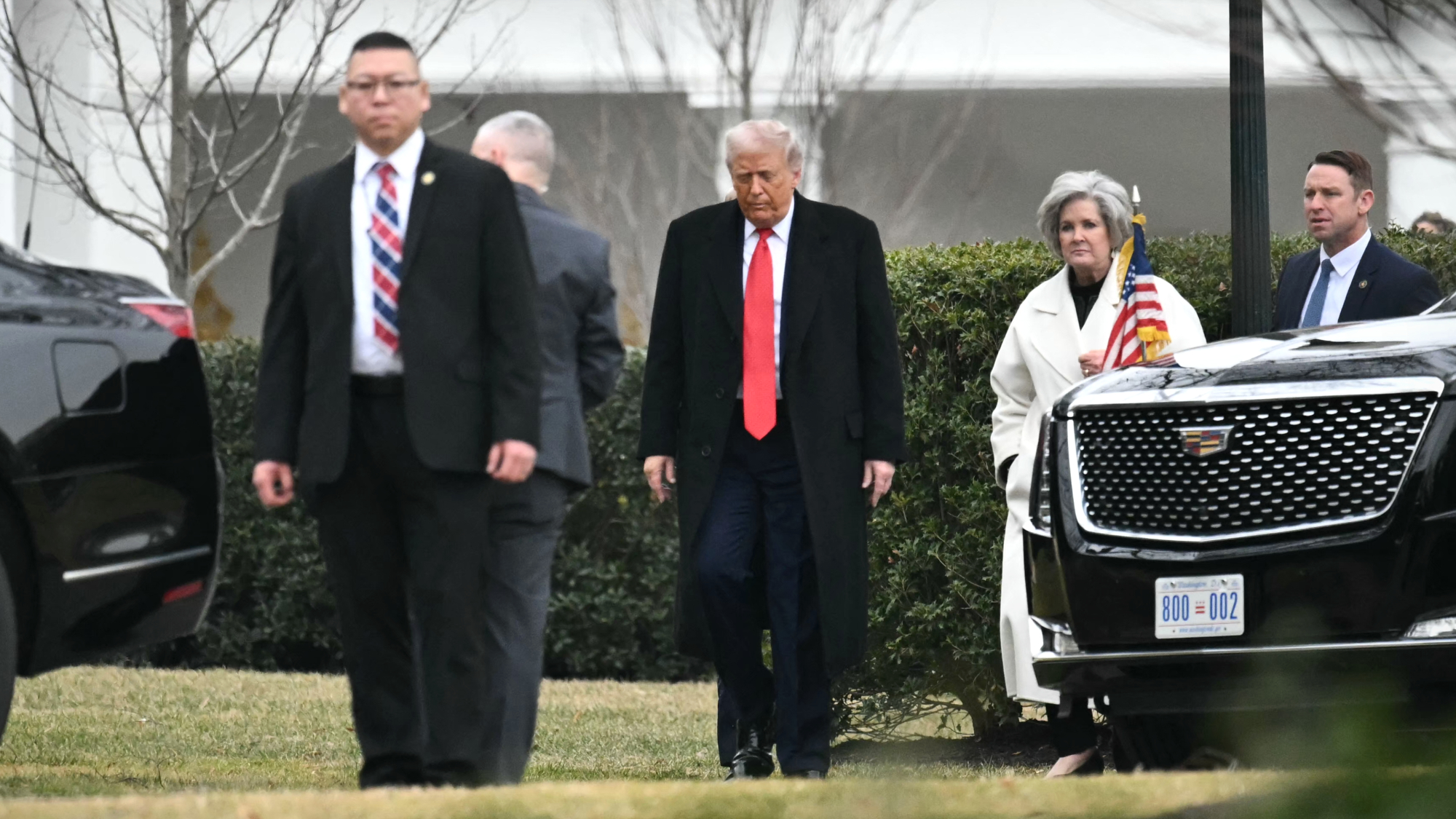Mitch McConnell's rare blunder
The Republican mastermind is handing Democrats a powerful impeachment cudgel


A free daily email with the biggest news stories of the day – and the best features from TheWeek.com
You are now subscribed
Your newsletter sign-up was successful
Mitch McConnell is reportedly furiously trying to whip the votes necessary to avoid calling witnesses in the Senate's impeachment trial of President Trump.
This seems like a rare case where McConnell is making a politically substantive error.
Calling witnesses, after all, could be used to legitimize the GOP's acquittal vote, in the same way the cursory "investigation" of Brett Kavanaugh was used as a shield to justify his confirmation. Plowing through this farcical trial, on the other hand, gives Democrats a permanent argument against the trial's legitimacy and, more importantly, leaves the president and all elected Republicans vulnerable to damaging, election-eve revelations.
The Week
Escape your echo chamber. Get the facts behind the news, plus analysis from multiple perspectives.

Sign up for The Week's Free Newsletters
From our morning news briefing to a weekly Good News Newsletter, get the best of The Week delivered directly to your inbox.
From our morning news briefing to a weekly Good News Newsletter, get the best of The Week delivered directly to your inbox.
None of this has any bearing on how Republicans will vote. Like the film version of Titanic, everyone knows how the impeachment saga will conclude. The ship sinks. The president is acquitted. And as with the film, the real question is how the audience will react. So far, impeachment has had the curious dual effect of inflating the president's approval ratings to the highest of his presidency while also convincing, in many polls, a slim but real majority of the country that he should be removed from office immediately. More significant majorities believe the president abused his power and witnesses should be called and heard from in the Senate. But that sentiment hasn't budged elected Republicans, because they believe, with ample precedent in recent history, that voters will forgive their trespasses by November.
Remember that polling showed, in the spring of 2016, two-to-one majorities in favor of giving Barack Obama's Supreme Court nominee, Merrick Garland, a hearing in the Senate. Fifty-two percent wanted him confirmed. McConnell, staring down the maw of a massively unpopular position, gambled that voters ultimately wouldn't care enough to cast ballots against Republicans. He held the seat open and was proven right. Emboldened, Republicans abandoned the very idea of taking broader public opinion into consideration when plotting their next act of procedural destruction.
Republicans simply have a much better sense of what they can get away with than Democrats, who remain terrified of engaging even momentarily in escalatory or norm-breaking behavior. Knowing this, Republicans in the House and Senate have refused to take the process seriously. House Republicans conducted a made-for-Fox trial-within-a-trial of Joe and Hunter Biden and used their allotted time to browbeat viewers with ludicrous conspiracy theories about Ukrainian interference in the 2016 presidential election. The House strategy was to completely deny that any wrongdoing had taken place, not by seriously disputing the fact accounts of the witnesses, but by shameless misdirection.
Many Senate Republicans announced in advance that they would acquit the president no matter what they heard or saw in the House or in the Senate trial. Despite House Speaker Nancy Pelosi's apparent effort to hold onto the impeachment articles until McConnell cracked and agreed to witnesses, McConnell successfully called the bluff. The trial was always going to be whatever he wanted it to be: brief, with a conclusion so inevitable that the audience tunes out.
A free daily email with the biggest news stories of the day – and the best features from TheWeek.com
Until Sunday, it was all going according to plan. The president's other lawyers responded to the House managers' meticulous presentation with an impressive-in-its-scope hodgepodge of preposterous constitutional arguments, Federalist Papers mad libbing, and, remarkably, the same nonsense about the "perfect call" and Biden and Burisma that the House stuck with until the bitter end.
It's remarkable because, while there genuinely seem to be dozens of House Republicans who are credulous enough to actually believe the president's absurd spin, there aren't more than a handful of true Trump believers in the Senate, where the off-the-record frustration with the president's non-stop, presidency-warping antics are a badly kept secret. They are voting to acquit not because, in their hearts, they think the president did nothing wrong, but because they share the widespread belief that convicting him would cripple the party heading into the 2020 elections and they don't want to cross a man who has no compunction about knifing wavering Republicans.
Party over country, every single time.
That, you see, is a difficult logic to convey to the public, and to reporters. And it's awkward, because the president's attorneys are laying down the last layer of icing on a B.S. cake that most Senate Republicans will not be able to bring themselves to eat in public. The president's infamous refusal to ever admit that he has done or said anything wrong or improper is now a burden that every elected member of the party must carry. And some of them, including Susan Collins (Maine), Martha McSally (Ariz.), and Cory Gardner (Colo.) are fighting uphill battles for their political lives in November. They long ago gambled that they'd rather fight the general election than the primary, which explains why they will vote to acquit. But they would almost certainly prefer to be saying something along the lines of "While the president committed an abuse of power, it doesn't rise to the level of removal."
Sunday's news about former National Security Advisor John Bolton's forthcoming memoir was therefore disruptive not because the GOP is all that terrified of calling witnesses in this trial, but because it makes it that much harder to square the needs of vulnerable Republican senators with the absurd narrative the rest of the party is rolling with. The president's lawyers are up there saying, in essence, that this whole thing is a hoax, and here comes his most senior foreign policy advisor saying not only that Trump did it, but that Trump explained it to him personally.
What's done is done though. That's why McConnell's effort to evade witnesses is not only morally wrong, but also especially politically puzzling in the wake of the Bolton manuscript leak. It's not even clear that Republicans should have any genuine substantive fears about what will happen if witnesses are called. Mick Mulvaney and Rudy Giuliani and Rick Perry would just lie. Bolton would describe his incriminating conversations with President Trump. The right-wing media machine, which has already begun the task of delegitimizing Bolton, would package up a neat little narrative so that Republican voters can sleep well after voting to re-elect the president.
Much has been made of the need to acquit the president before the State of the Union on Feb. 4, but has anyone thought through that logic? What will happen if the trial isn't wrapped up by then? Will the president spontaneously vaporize? Will his millions of minions suddenly abandon him? Surely not.
Why not just rip the band-aid off today and get all of the damaging information that exists out into the open, rather than closer to the election? Now that Bolton's story is out there, rushing a witness-free trial benefits no one in the Republican Party. It doesn't help the purple state senators who have to explain both Bolton's charges and the decision not to call him as a witness. It certainly doesn't help the president. It gives Democrats a cudgel with which to assail their adversaries from now until November. And it will give the spotlight right back to Democratic primary contenders currently starved of media oxygen.
McConnell though, presented with the extremely rare opportunity to do the right thing and also to benefit from it politically, looks dug in. We'll find out on Friday whether he has his votes.
Want more essential commentary and analysis like this delivered straight to your inbox? Sign up for The Week's "Today's best articles" newsletter here.
David Faris is a professor of political science at Roosevelt University and the author of "It's Time to Fight Dirty: How Democrats Can Build a Lasting Majority in American Politics." He's a frequent contributor to Newsweek and Slate, and his work has appeared in The Washington Post, The New Republic and The Nation, among others.
-
 The Olympic timekeepers keeping the Games on track
The Olympic timekeepers keeping the Games on trackUnder the Radar Swiss watchmaking giant Omega has been at the finish line of every Olympic Games for nearly 100 years
-
 Will increasing tensions with Iran boil over into war?
Will increasing tensions with Iran boil over into war?Today’s Big Question President Donald Trump has recently been threatening the country
-
 Corruption: The spy sheikh and the president
Corruption: The spy sheikh and the presidentFeature Trump is at the center of another scandal
-
 House votes to end Trump’s Canada tariffs
House votes to end Trump’s Canada tariffsSpeed Read Six Republicans joined with Democrats to repeal the president’s tariffs
-
 How are Democrats trying to reform ICE?
How are Democrats trying to reform ICE?Today’s Big Question Democratic leadership has put forth several demands for the agency
-
 Is Alex Pretti shooting a turning point for Trump?
Is Alex Pretti shooting a turning point for Trump?Today’s Big Question Death of nurse at the hands of Ice officers could be ‘crucial’ moment for America
-
 Halligan quits US attorney role amid court pressure
Halligan quits US attorney role amid court pressureSpeed Read Halligan’s position had already been considered vacant by at least one judge
-
 House approves ACA credits in rebuke to GOP leaders
House approves ACA credits in rebuke to GOP leadersSpeed Read Seventeen GOP lawmakers joined all Democrats in the vote
-
 The billionaires’ wealth tax: a catastrophe for California?
The billionaires’ wealth tax: a catastrophe for California?Talking Point Peter Thiel and Larry Page preparing to change state residency
-
 Vance’s ‘next move will reveal whether the conservative movement can move past Trump’
Vance’s ‘next move will reveal whether the conservative movement can move past Trump’Instant Opinion Opinion, comment and editorials of the day
-
 Bari Weiss’ ‘60 Minutes’ scandal is about more than one report
Bari Weiss’ ‘60 Minutes’ scandal is about more than one reportIN THE SPOTLIGHT By blocking an approved segment on a controversial prison holding US deportees in El Salvador, the editor-in-chief of CBS News has become the main story
